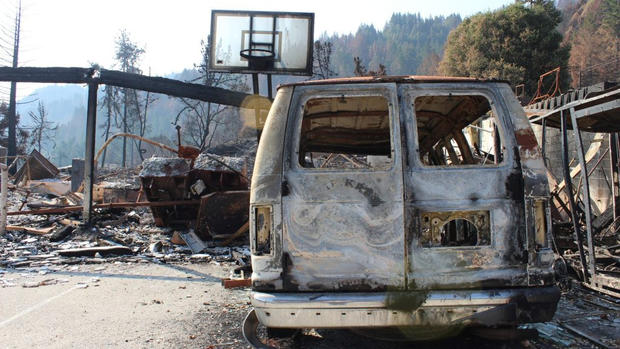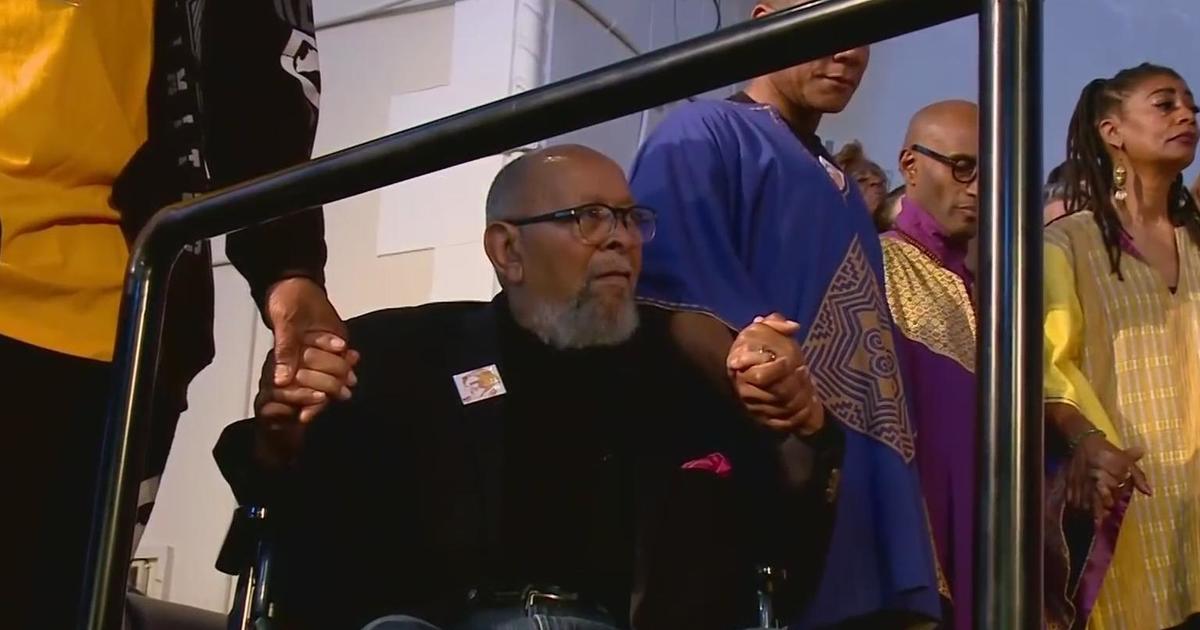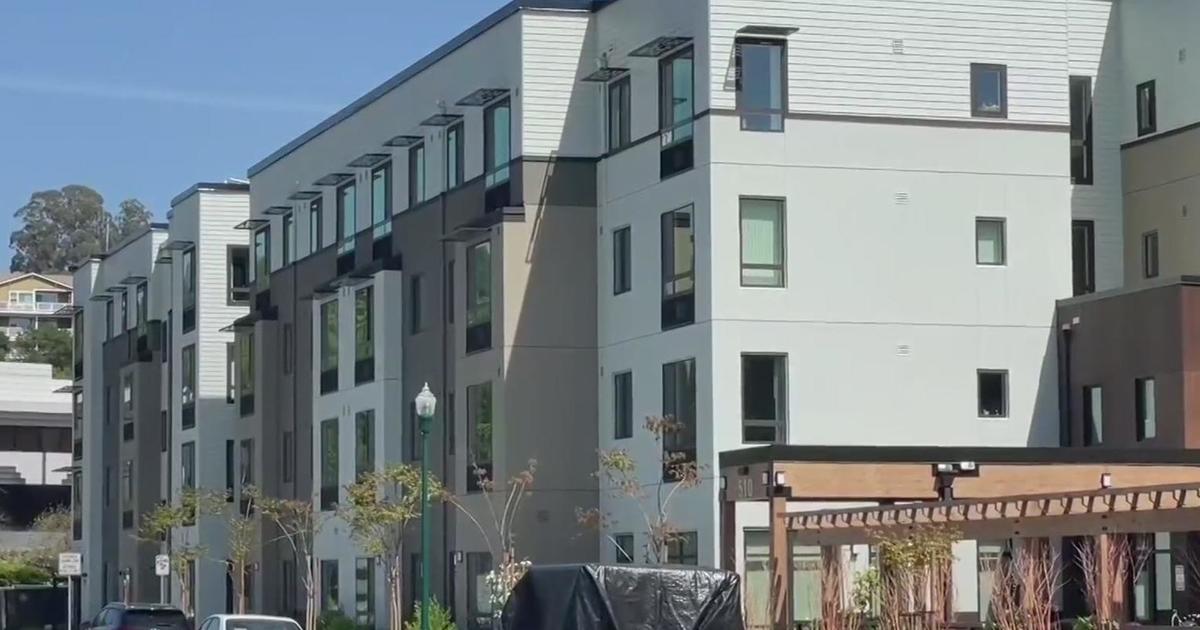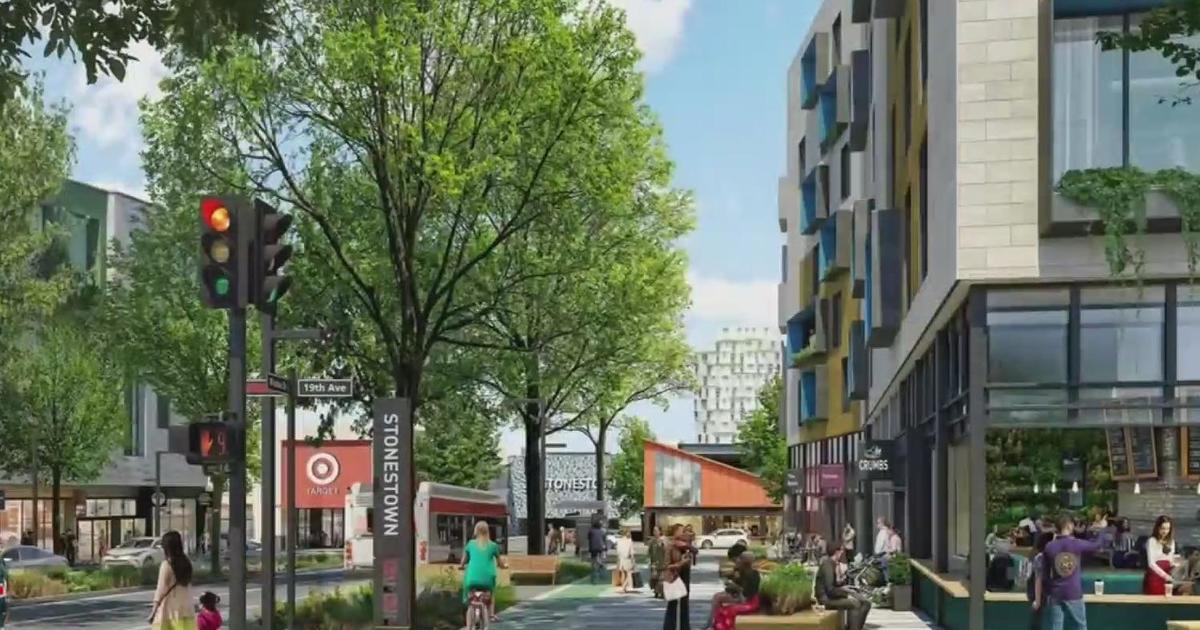Beloved Boulder Creek Camp For The Differently-Abled Rebuilds After Devastating Wildfire
SANTA CRUZ COUNTY (CBS SF) -- Located in the forests of Boulder Creek, Camp Krem represents a small handful of the 1,490 structures that fell victim to the CZU Lightning Complex fires in Santa Cruz County. But it was an outsized, deeply felt loss for its thousands of current and former campers, their families and staff.
"If your house burns down and your family is safe, your house is still burned down. It's a bit like that," Alex Krem, board chair at Camp Krem, said. "We lost the heart and soul of our camp."
The sleep-away camp has served as a sanctuary for the differently-abled population since 1957. It welcomed anyone over the age of 3 who has severe autism, Down syndrome or other cognitive or developmental disabilities.
"It took 63 years to build up and one day to burn it all down," Krem said. "But by the time this COVID-19 lockdown ends, we will be there."
The fire decimated nearly all of the 97-acre site, leaving behind one of 10 cabins and a 95,000-gallon swimming pool that accommodates wheelchairs in the water.
Ironically, Krem said, COVID-19 was a saving grace. The stay-at-home orders had already forced Camp Krem to close its cabins. Had the camp been full, it would have been extremely difficult -- if not impossible -- to evacuate and properly house all the campers and staff.
Rebuilding the camp will be a considerable task, but that is not something new to Krem.
"The history of camp is all by hook and by crook," he said. "We don't have any big sponsors so everything we had there is donated ... the architects were volunteered, the material, the concrete, the people who dug up the pool ... we may have to do it that way again."
Right now, the camp team is focused on getting its roads repaired, waiting on FEMA and the county to finish debris clean-up and shoring up soil against the threat of landslides in the coming rainy season.
It will take two to five years at least before the camp can welcome back campers onsite, and the rebuild will cost millions of dollars, Krem said, but he's encouraged by the support the camp is already getting.
"If we have other good people, like we had before, then we can do a lot more a lot quicker," he said.
And some of the "good people" are already here. San Jose-based electric contractor New Age Electric has offered to donate all the labor for the electrical needs during the rebuild, and has already been on site.
Krem said it is an act of great generosity -- the same type that has sustained and grown Camp Krem from a modest tent in his father's backyard in the early 1950s to the camp that housed more than 800 people in the summer
of 2019.
Alameda resident Diana McDonough's son Michael McDonough has been spending summers at the camp since 1997. She said she knows the camp will "rise from the ashes," though she worries how changes brought by the fire affect the campers.
"It is going to be blackened and still smell of smoke," McDonough said. "When things change in their world it can be really difficult ... so a lot of parents are really anxious. I know that the folks at Camp Krem will try really hard to make it as fun as possible but it's going to look and be different and I don't know what that is going to mean for our guys."
She added, however, Camp Krem has been a place of refuge for her 31-year old son, who has been going since he was 8, and she doesn't plan to abandon it.
"Camp is a place where Michael can be Michael, where he doesn't have to be in a rigid world that has certain expectations of him," McDonough said. "Even if Camp Krem is back in tents we are coming back. This type of inclusive space is not easily replaceable."
McDonough said the camp is not only a vacation for the campers, but for their parents as well, and Krem agreed.
"If you have a child with special needs, that is a very tough assignment, and now that we are locked down and kids stay with their parents it is more difficult," Krem said.
Above all, Camp Krem provides a recreational experience for a community that, when the camp was founded in 1957, didn't have that opportunity. This was Krem's father's main mission.
Alex Krem was in high school when his father, a special education teacher, started taking children with developmental disabilities camping.
"He loved camping and outdoor sports and discovered that this population has never been camping," Krem said. "It was a time where the population was just coming out of the closed bedroom with the screen and the shade pulled down over the window. If you had a child with special needs, you didn't talk to people about it. It was sort of your little dark secret. Everyone was embarrassed about it."
Krem said his father, instead, maintained that the disabled population must interact with the rest of the world.
"He became a pioneer of what was called mainstreaming, now called integration. He insisted that his children had lunch at the same time and
same area as the other kids," Krem said. "He would take his kids to the public pool in Santa Cruz and sometimes those pools would be packed, but when
we came, everyone would leave."
Camp Krem was established a few years after his father started the small field trips to the pool or to the snow -- providing a physical place where everyone would feel accepted, Krem said.
Susan Riggle, an El Cerrito resident, said the destruction of Camp Krem was a huge loss to her and her son, who has been attending the camp for five years.
"It is a place of acceptance, love, and it's unconditional. It is so great," Riggle said. "You could walk around and flap your arms, and nobody would bat an eye, and people just felt comfortable."
Riggle's son Tommy, now 19, is diagnosed with severe autism among other issues.
"I saw the brochure for Camp Krem when my son was 10, and I threw it to the side saying they would never take my kid because he was so disabled intellectually, and he was aggressive and all those things," Riggle said.
"But not only did they take my kid, he was a rock star there. He came back
taller, more confident and really felt like he was the big man on campus."
Before the fire, Riggle had teamed with Alex Krem to establish long-term housing solutions for the population after their parents or caregivers were no longer alive. Called Living Unlimited, the project has identified three complexes as housing sites -- one of which is already being populated.
In the wake of the fire, Riggle remains confident in Camp Krem's resilience. And, when COVID-19 is no longer a threat, Krem says he will resume the small weekend trips to reunite the campers and offer a break for parents.
Though devastated by the loss of the campgrounds, Krem said he is excited at the opportunity to reimagine and improve Camp Krem.
"We want everyone to know that we are there for them," Krem said.
Those who are interested in supporting Camp Krem's rebuilding efforts can donate money at the Camp Krem website or can email Alex Krem at campkrem@campingunlimited.org to offer material, labor or other
services.
© Copyright 2020 CBS Broadcasting Inc. and Bay City News Service. All Rights Reserved. This material may not be published, broadcast, rewritten or redistributed.





